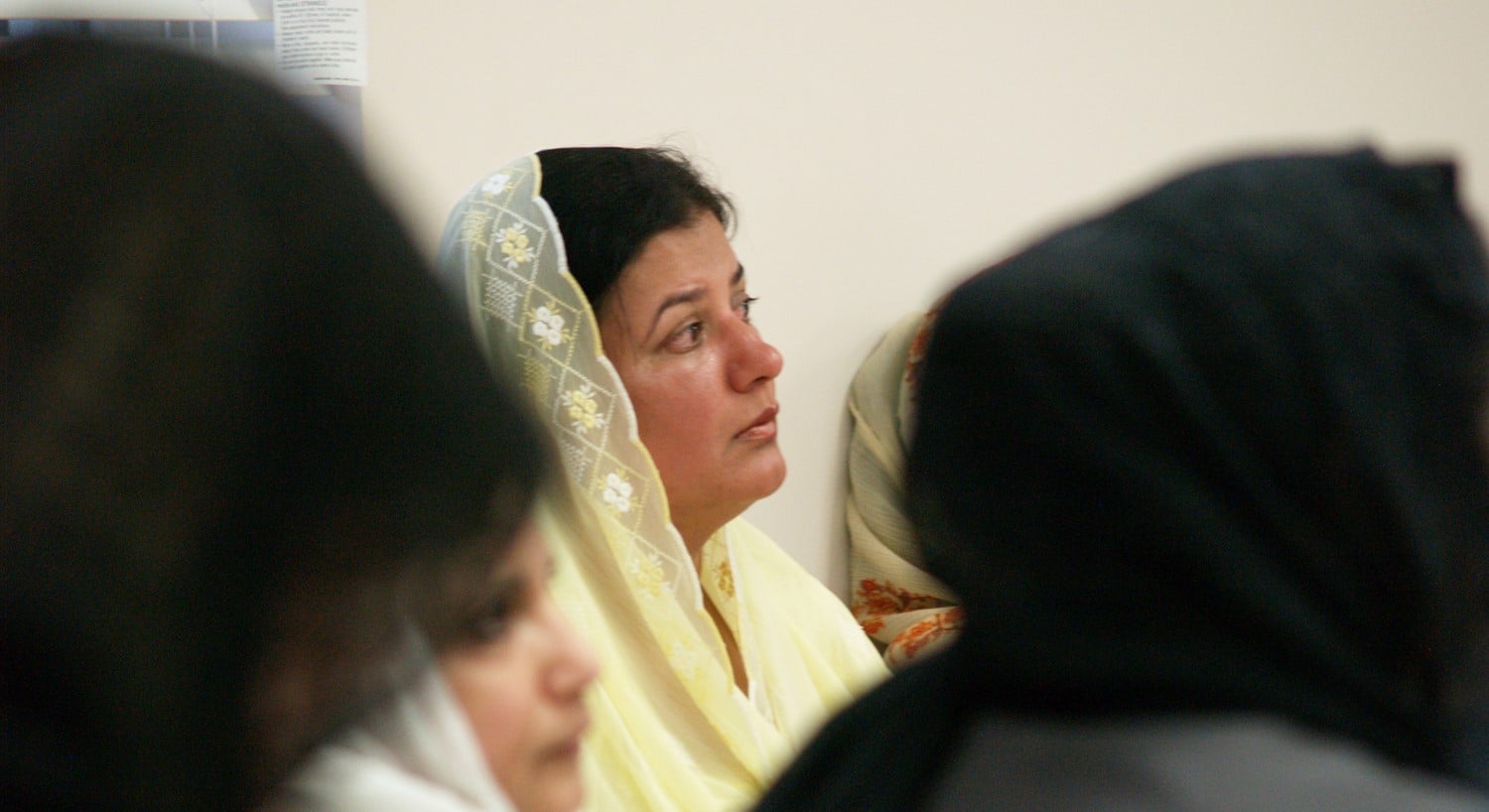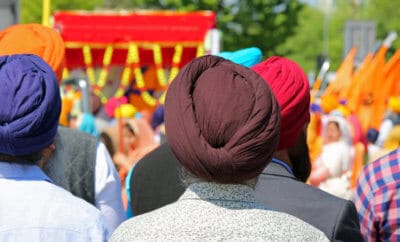India
Sikhs in America Question Gender Inequality at Golden Temple

Sikh-Americans want women to be allowed to perform kirtans at Golden Temple.
Sikh women should be allowed to perform kirtan at the Darbar Sahib, known as the Golden Temple, a group of Sikh-Americans demanded at a gathering at Maryland suburb of Washington this month.
Rajwant Singh, one of the Sikh Americans who taught the campers, told PTI:
“It is clear from the many other historical references that Sikh women were crucial to the success of the 5th largest religion and it is extremely important that we give them their deserving role in Sikh affairs, especially being able to sing shabads or hymns at the very heart of Sikhism, in Darbar Sahib, the Golden Temple”
The Sikh youth camp, attended by about 120 young members of the community, amonth others, was organised by the Washington-based Guru Gobind Singh Foundation.
Sikhs Gurus Preach Gender Equality
Sikhism is known for the equality and inclusivity it offers to women. About 500 years ago, Guru Nanak, the founder of Sikhism, preached that women are equal to men.
“From her (woman), kings are born. From a woman, woman is born; without woman there would be no one at all.” (Guru Granth Sahib, 473).
The Sikh Gurus made no distinction between men and women, according to Manmeet Kaur Sodhi of the Institute of Sikh Studies. They included women with the men in the Langar (common kitchen), and encouraged them to participate in all other religious, social, and cultural activities of the Gurdwara Sahib, he writes.
More than five centuries later, the issue of inequality in Sikhism raises questions. In the past, women have often questioned why they are not allowed to do the kirtans.
In 2004, Bibi Jagir Kaur, the then president of Shiromani Gurdwara Parbandhak Committee (SGPC), sought to pass the resolution for allowing women to perform kirtan in Harmandar Sahib, but it was unsuccessful.
International Attention
In 2003, gender discrimination in the Golden Temple was highlighted at the international level after two England-based Sikh women were allegedly assaulted by SGPC sevadars during ‘sukhasan’ (carrying Guru Granth Sahib in a palanquin) at the Golden Temple .
Even though many in India have protested against the inequality, the issue hasn’t garnered the attention it needs in the country. “I think we need to first convince the Sikh masses to accept the idea. But one thing we all know, the Gurus never discriminated against women,” Harjinder Kaur, a Shiromani Akali Dal (SAD) candidate, was quoted as saying by the Hindustan Times.
Significance of Women in Sikhism
Calling it the most modern religion, Rishiwant Singh of United Sikhs, a Malaysia-based humanitarian aid organiser, told the Times of India: “There is no question whether women should be allowed to do sewa of kirtan or not.”
US-based Sikh activist Rajwant Singh highlighted the significant role women have played during the history of the religion. He spoke about Bebe Nanki, Guru Nanak Dev’s sister who was the first Sikh to play an important role in organising the community in the initial stages. “Similarly, Mata Khivi, who is the only woman mentioned in the Sikh scriptures, is the main person who popularised langar, a vegetarian community meal which is still in practice. Her daughter, Bibi Amro, was also installed as a Sikh preacher by Guru Amardas — the third Sikh guru,” he told the Times of India.
Petitions and Gatherings
This time, however, the questions came from Sikhs living abroad. A petition was started last year by a Canada-based Sikh woman who wasn’t allowed to do any service of God or recite hymns at the Golden Temple. In her petition, she writes:
“Sikhism is a religion founded on the principle of equality. Because God created us all equally. Regardless of gender, of race, or sexual orientation, of ability, of money, of anything. The only thing that matters is our actions.”
She questioned, “So then why is this happening today? The very thing the Gurus protested against?”
Sikhs in America are highlighting the issue that many religious alliances have been ignoring so far. “This Panth would not be where it is today without the actions of Sikh women, so we should recognise their contributions,” Sehejneet Kaur, one of the counselors, told PTI.




You must be logged in to post a comment Login